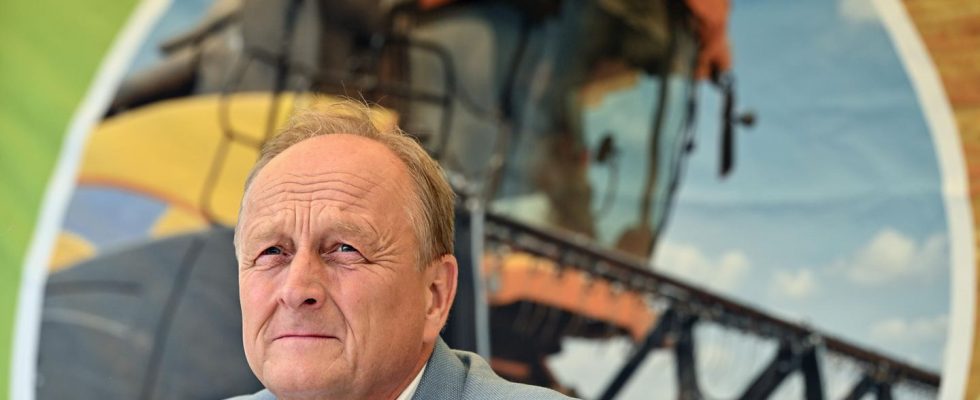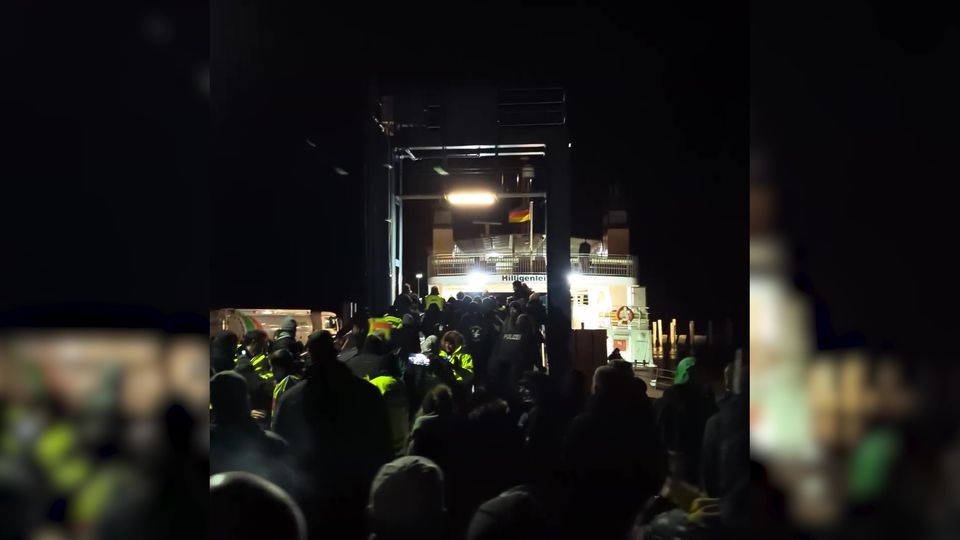Joachim Rukwied
The farmer president who has little use for court romance
Joachim Rukwied has been President of the German Farmers’ Association (DBV) since 2012.
© Martin Schutt / DPA
Joachim Rukwied is a farmer with heart and soul, as he says, but also with a lot of anger in his stomach. Once again the farmers’ president goes to the barricades. Who is the man?
For Rukwied, the blockade of the peasant mob in the port of Schlüttsiel went too far. He described the action, in which Vice Chancellor Robert Habeck was unable to leave his ferry, as a “no-go”. “Personal attacks, insults, threats, coercion or violence are not acceptable,” it said in a statement. We are an association that upholds democratic customs. “Despite all the displeasure, we of course respect the privacy of politicians.”
But the anger of the farmers remains unabated, Rukwied leaves no doubt about that. “It’s enough!” he said to the “Bild” newspaper. The association is calling for the cuts plans to be completely withdrawn “without ifs and buts”. Rukwied expects “tens of thousands of tractors” to come to the planned protest trips across Germany. “It goes without saying that this will also cause traffic disruptions.”
The head of the family is fed up.
Whether fertilizer regulations, glyphosate bans or agricultural packages: more and more regulations are making life difficult for farmers, even though they are already farming like berserkers. That’s how Rukwied, the farmer’s godfather, sees it. “That’s why many farmers are frustrated, they say: Man, I’m doing a lot more than before, but the criticism is increasing,” he said in a 2019 report star-Interview. A few weeks before the conversation, the federal government’s insect protection program caused the farmers to take to the barricades and drive up with trekkers. “This affects the farming soul of many farmers,” explained Rukwied, who himself runs a farm in Eberstadt near Heilbronn. “They tell me: ‘We don’t allow ourselves to be paraded all the time.'”
Court romance? Not with Joachim Rukwied
Rukwied is considered a resolute and controversial representative of the interests of his farming family. He is married and has three children. His parents ran a family farm in Eberstadt in the Weinsberg Valley near Heilbronn, which he took over in 1994 – in the eighth generation. But he has little interest in court romance.
He is a farmer “with heart and soul,” as the then new farmers’ president told the “Frankfurter Allgemeine Zeitung” in 2012. But the pay also has to be right. During his agricultural economics studies in Nürtingen, he placed a clear focus on business administration.
14 images
He later worked on setting up advice centers for farmers, which is how he found his way into the state farmers’ association and probably also into politics. He sat on the Eberstadt municipal council for the CDU and was deputy mayor of the small municipality with around 3,000 residents. In 1996 he became chairman of the Heilbronn district farmers’ association for the first time, later president of the state farmers’ association in Baden-Württemberg (since 2006). And so on.
In any case, Rukwied has a feeling for when the farmer’s soul is sore and when there is great displeasure. Now the federal government has also issued a “declaration of war on German farming families,” he says. And with that to his family. Of course: Rukwied doesn’t leave this unanswered.
“This is a declaration of war”
After it became known that the traffic light coalition was planning cuts in its austerity budget to the detriment of farmers, thousands of farmers from all over Germany traveled to the capital. Hundreds of them came with combine harvesters and tractors to protest against two cuts: the removal of the diesel privilege and the end of the exemption from vehicle tax, which was expected to cost the industry almost a billion euros a year. First they blocked parts of the city center, then they honked and trilled, shouting “boo” and “liar” at the Green Agriculture Minister Cem Özdemir. According to the farmers’ association, around 8,000 angry farmers gathered in front of the Brandenburg Gate. Rukwied was one of them.
“This is a declaration of war,” he said in his speech to the protesters, “and we accept this declaration of war.” If the federal government does not withdraw the “unreasonable” proposals, then there will be a “hot January”.
That was in December. The cuts plans have now been defused by the traffic light leaders. Despite his partial success, Rukwied does not want to give in and demands that the proposals be completely (and not partially) withdrawn. The farmers’ association is calling for an “action week” from January 8th, and a large demonstration is planned in Berlin on January 15th. In the “Tagesspiegel” He announced: “What we will see next week is something the country has never seen before from the farmers.”



